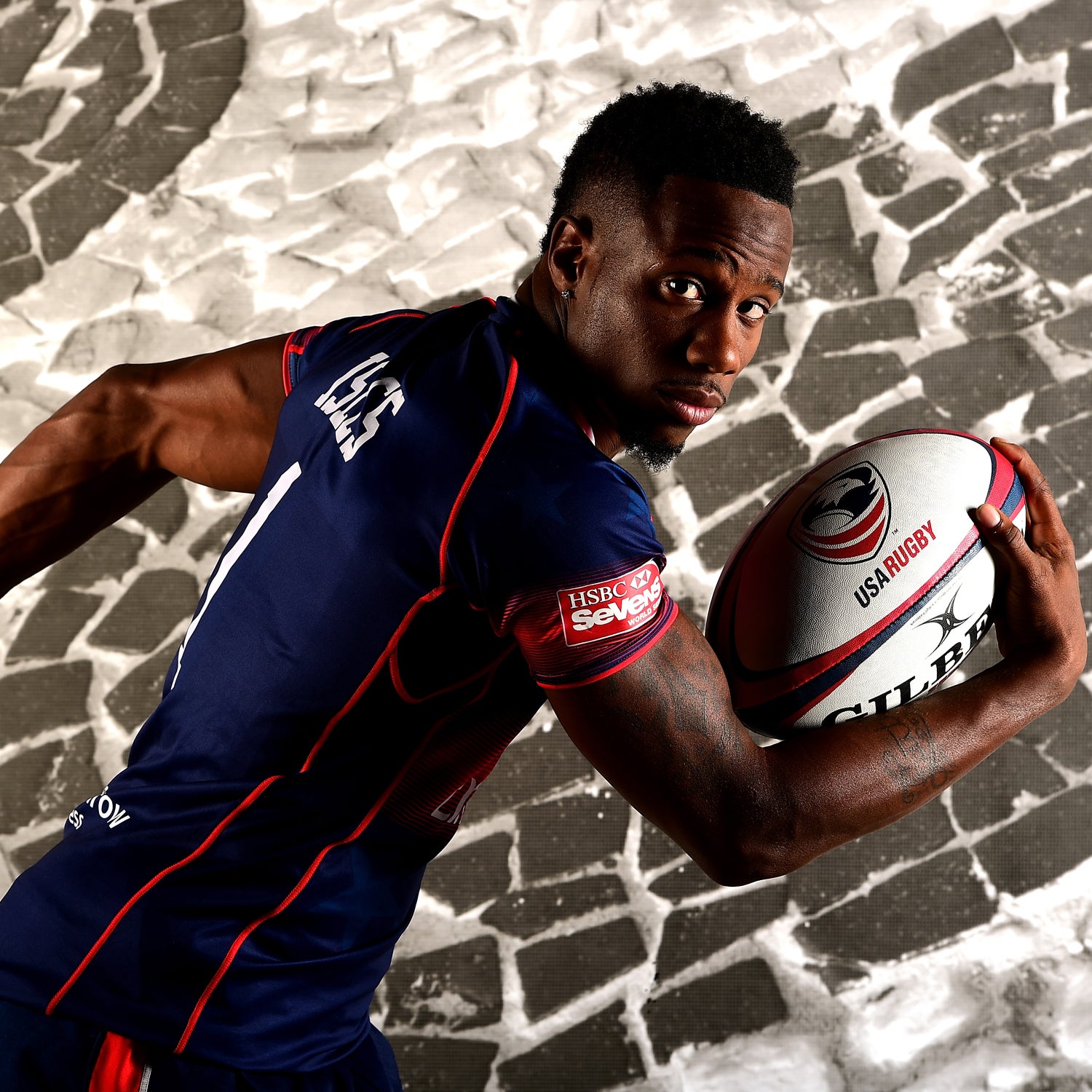In 2012, wanted to sprint in the London Olympics. He knew he was fast—he ran the 100 meters in 10.13 seconds at a race in Austin, Texas, that year—but he thought he could go faster. He was researching training techniques on the Internet when he found rugby, a sport he had never seen, much less played. “The only thing I knew is that they didn’t have any pads and people get their teeth knocked out,” he says.
Then 22, Isles was no stranger to discomfort. As a boy, he shuffled between foster homes after his mother went to prison. At times he was so hungry he ate dog food. He got into fistfights and ran away. That all changed when Charles and Starlett Isles, both property managers in Massillon, Ohio, adopted him at age eight and helped him direct his energy toward sports.
When he tried rugby as an adult, he took naturally to its blend of finesse, power, and endurance. At five-eight and 167 pounds, Isles was small for the sport, but he thought his speed would give him an edge on a pitch that’s roughly a third larger than a football field. He reached out to the U.S. national team, the Eagles, and a manager suggested he play for an amateur club in Aspen, Colorado. “I was sleeping on couches, eating peanut butter and jelly sandwiches, working odd jobs,” he says. “I was willing to do anything.”
“Rugby’s ten times more exhausting than football. You’re running nonstop.”
It took some time to understand rugby’s rules and strange vocabulary of line-outs (the equivalent of a jump ball) and scrums (two dog piles pushing against each other to start a possession), but his speed spoke for itself. After just a few months, Isles was on the national team. He scored a try (a touchdown) 46 seconds into his first game against New Zealand, the giant of the sport. Commentators began calling him the fastest man in rugby.
The sport returns to the Olympics in 2016 after a nearly 100-year absence, though it won’t be the version fans are familiar with. Instead, teams will play rugby sevens—a viewer-friendly variation with seven-man squads (instead of 15) playing 14-minute games (instead of 80). Players score points by touching the ball across the goal line or booting it through the posts, just like in standard rugby. If a shorter match sounds easy, it isn’t. “Rugby’s ten times more exhausting than football,” Isles says. “You’re running nonstop.”
While the Eagles aren’t favorites, they are ranked among the top ten teams in the world. Isles is especially eager to show viewers what he can do. “Running fast is my way to express who I am,” he says. “I feel alive when I’m able to do that.”


